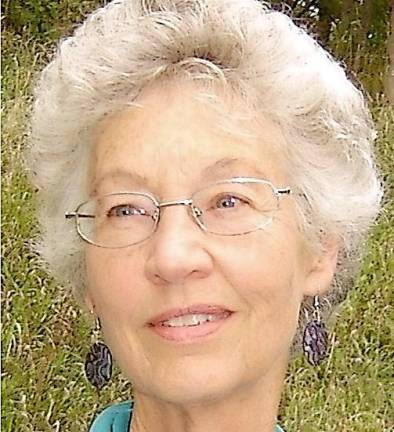New poetry chapbook out by much published Warwick poet
Warwick. Poet and teacher Mary Makofske says she finds poetry to be a way of making sense of experience and articulating it in new ways. She will read from her work on Aug. 17, 7 p.m., at the Milkweed Poetry Workshop at the Bucksbee Center.

Family, particular locations and this moment in history are the focus of a new chapbook of poems, “The Gambler’s Daughter,” by Warwick resident Mary Makofske, just released by Orchard Street Press.
“These poems were written over a period of many years,” Makofske said. “After I won a contest for an individual poem, the Orchard Street Press invited me to submit a chapbook. I drew together these poems, primarily about family, and organized them beginning with my experiences as a child, and then my experiences as adult, wife, mother, and grandmother.”
Fellow poet J.R. Solonche, author of Selected Poems, 2002-2021 described the collection as “documenting a life both full and fulfilling.”
Makofske’s poems have appeared in 70 literary journals, 19 anthologies and on Poetry Daily. One poem was an Audio Poem of the Day on the Poetry Foundation website, and another appears in the New Oxford Shakespeare: The Complete Works (Critical Edition, 2016) before the play Twelfth Night. Her latest full-length books are World Enough, and Time (Kelsay, 2017) and Traction (Ashland, 2011), winner of the Richard Snyder Prize.
Makofske is a retired professor of English who has read her poetry and led writing workshops throughout the Hudson Valley. She will read from her work at the Buckbee Center in Warwick on August 17. She has been writing poetry for more than forty years.
“I find writing poetry to be a way of comprehending experience as well as experimenting with language,” she said.
“Dinner Guests: A Memory,” is a poem from the chapbook that recalls isolation during the height of the Covid pandemic.
Dinner Guests: A Memory
Dusk, dishes cleared, candles lit,
the last of the wine poured.
Outside the porch a bat flits
as sight comes unmoored
from talk that deepens
as if darkness thrives
on darkness we attempt to keep
below the surface of our daily lives.
So common a ritual, breaking
bread together. Who could believe
the need to turn away, forsaking
such communion, no reprieve
in sight. Masked, distanced,
flattened to images on screens
or disembodied voices, existence
that denies our hunger to be truly seen.
How hard it was to end the night,
rise, meander toward the door,
blinking in the artificial light,
the hugs good-bye, assured
we’d see each other soon
to savor food and human touch.
Now, bereft of company, the rooms
hold deeper darkness, deeper hush.